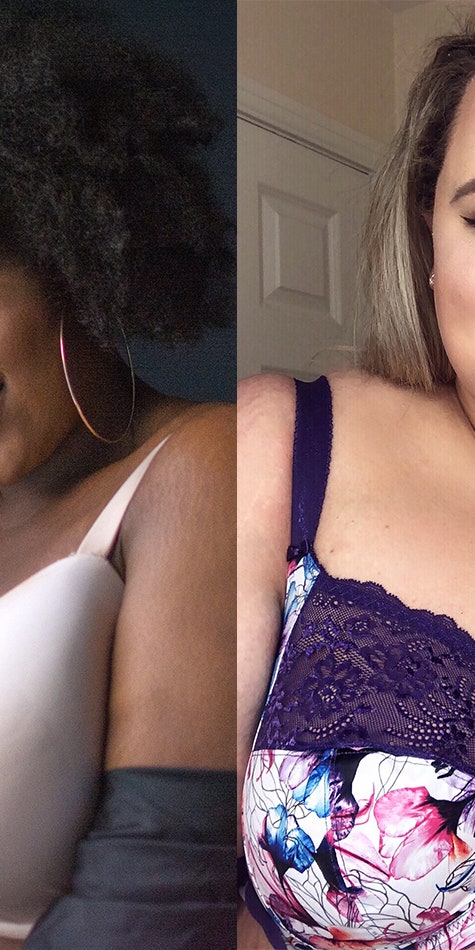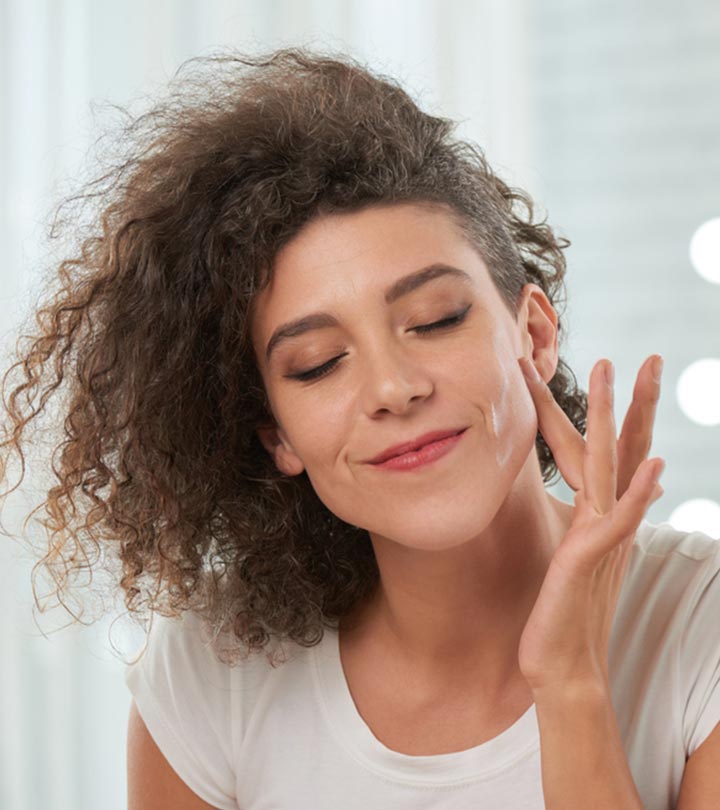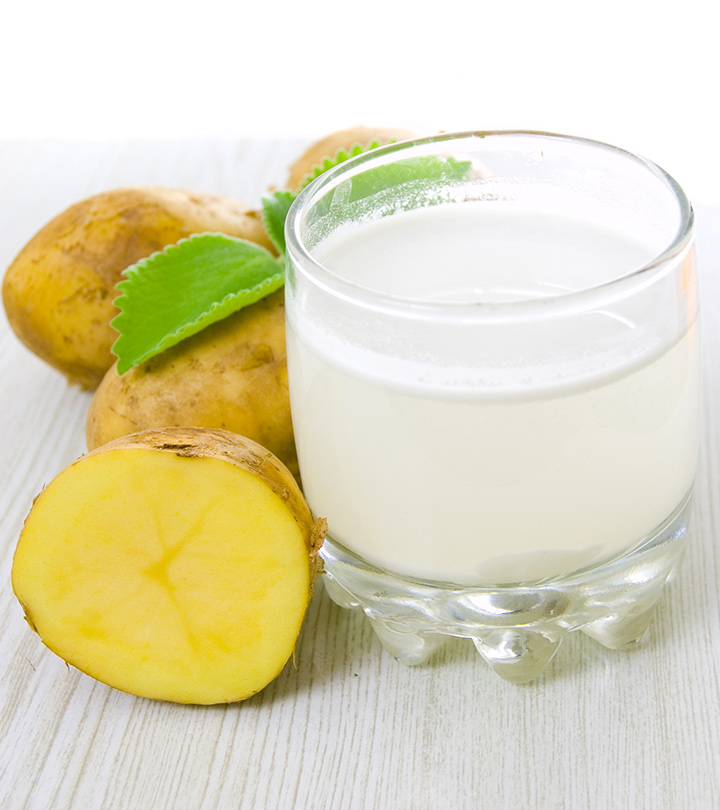Having a face darker than the body is not uncommon. Most of us face this issue, and it is quite natural to wonder about the same. Several reasons make your face darker than your body, but do not worry. We can offer you some simple home remedies and treatments to help you get back the same color on your face as the body. This article discusses the different causes of skin darkening and ways to manage it. Keep reading.
In This Article
Why Is Your Face Darker Than Your Body?: The Possible Reasons
1. Overexposure To The Sun
Shutterstock
Did you know that your facial skin experiences more damage than other parts of your body due to the suns rays? The harmful UV rays from the sun are responsible for skin darkening. You can observe this color change when you are out in sunlight for a few hours. UV rays can deeply penetrate your skin layers and stimulate melanin (pigment) production.
Melanin is responsible for your skin color. It also protects your skin from UV damage. However, your skin produces more melanin when you are exposed to the sunlight (1). This is one of the main causes for your face being darken than your body. It can also cause age spots that appear as tan, brown, or black marks on your skin (2).
Related: What Is Sun Damaged Skin? How To Deal With It?
2. Hormonal Issues
An increase in estrogen levels in the body may lead to increased skin pigmentation. This condition is known as melasma. You usually notice it in women who are on oral contraceptive pills or hormone replacement therapy and pregnant women.
This skin disorder mainly occurs due to sun exposure, hormonal changes during pregnancy, photosensitizing drugs, and steroids (3). You can observe brown patches on the skin that look similar age spots. Also, genetics play a key role in the case of this skin disorder. That means you are likely to have melasma if people in your family have melasma.
Abnormal cortisol level is also said to cause estrogen imbalance in the body (4). This then increases melanin production which, in turn, causes darkening of the skin (5).
3. Irritating Cosmetic Products
Shutterstock
Most of the skin care products that you put on your face contain harmful chemicals that are harsh on your skin. These chemicals may cause dry patches, age spots, and discoloration. They may also contain some ingredients that are susceptible to darkening in the sun. Also, some cosmetic products cause acne outbreaks and make your face even darker.
4. Autoimmune Diseases
A few autoimmune diseases can cause inflammation in your facial skin. Diseases like lupus can change your skin color (6). Discoloration can also be the first symptom of diabetes (7). Also, if you have any kidney-related disease, your skin color may turn dark (8).
Related: Home Remedies For Lupus: 9 Ways To Manage It Naturally
5. Medications
Shutterstock
Intake of certain medications can cause hyperpigmentation on your face. Non-steroidal anti-inflammatory, antimalarial, and cytotoxic drugs may cause skin discoloration (9). They can impart a gray tone to your skin.
These are the reasons for facial skin darkening. Are you looking for natural ways to improve your facial skin color? Here are home remedies that you should try.
Home Remedies You Should Try
- Aloe Vera: Aloesin, a compound derived from aloe vera, is effective in treating pigmentation issues (10). This active compound works as a depigmenting agent and inhibits melanin production. You can apply it regularly to your face.
Shutterstock
Related: 12 Aloe Vera Face Packs For Different Skin Types
- Tea Tree Oil: Tea tree oil is considered to be effective in treating pigmented skin. The antimicrobial and anti-inflammatory properties of tea tree oil reduce the severity of acne lesions (11). You can use it regularly to see results.
Related: 31 Health Benefits Of Tea Tree Oil And Its Side Effects
- Orange Peel: Orange peel contains an active compound called hesperidin that lightens the skin (12).
Shutterstock
Related: Top 10 Benefits Of Orange Peels – Why They Make Your Life Better
- Vitamin C: Citrus fruits like oranges and lemons are a good source of vitamin C. Vitamins can treat several skin problems like skin darkening (13). It protects your skin from UV damage and free radicals while reducing hyperpigmentation (14). You can opt for over-the-counter creams or serums that contain vitamin C.
StyleCraze Says You can also combine honey and lemon juice and apply the mixture on your face for 10 minutes. Make sure to wash your face afterward properly.
There are several treatment options to address this skin concern. Scroll down to know more!
Related: 28 Benefits Of Vitamin C, Dosage, Deficiency, And Precautions
Best Treatment Options To Improve This Condition
1. Retinoids
Retinoids are derivatives of vitamin A. They are used to treat many skin issues, like acne and signs of aging. Retinoids are an effective topical treatment for melasma (15). They help to reduce age spots by improving cell turnover. Also, they are used to treat post-inflammatory hyperpigmentation.
Related: 4 Benefits Of Retinaldehyde For Your Skin You Should Know
2. Kojic Acid
Kojic acid is used for skin lightening. It is used to treat skin hyperpigmentation, melasma, and wrinkles (16). It lightens the skin by inhibiting the production of tyrosine (an amino acid) that is responsible for the production of melanin. You can find kojic acid in many cosmetic products such as gels, creams, and lotions.
3. Hydroquinone
Hydroquinone is a standard depigmentation and skin-lightening agent used in many medicated creams (17). When applied to your skin, it regulates melanin production, reduces dark spots, and lightens your skin tone.
4. Salicylic Acid
Salicylic acid prevents acne formation by disrupting cellular functions and stimulating natural exfoliation (18). This skin-lightening acid peels off the outer layer of your skin and allows new skin cells to be regenerated.
5. Niacinamide
Niacinamide is a form of vitamin B3. It can improve the appearance of aging facial skin and hyperpigmented spots on the face (19). It reduces the sebum production on the face and works as an excellent treatment for acne (20).
6. Alpha Hydroxy Acids
Alpha hydroxy acids (AHAs) are natural water-soluble acids that exfoliate the skin to reduce comedone formation (18). They reduce the appearance of acne scars, age spots, and minimize discoloration.
7. Glycolic Acid
Glycolic acid peels work to exfoliate your skin by removing dead skin cells from your face. It lightens your skin tone and decreases the risk of post-inflammatory hyperpigmentation (21). If you are taking any topical medicines, avoid using glycolic acid.
You can also opt for laser treatments that can speed up the process of removing the outer layer of your skin. However, laser therapies are expensive compared to the other options mentioned above.
You can prevent your facial skin from getting dark. Find out how in the next section.
How To Prevent Your Face From Getting Dark
-
- Always use skin care products that are suitable for your skin type to avoid any unwanted skin problems.
- Use any skin-lightening cream that is suitable for your skin type.
- Dont forget to apply sunscreen whenever you go out. Also, try to wear a hat, scarf, or sunglasses while going outside. They will protect your face from tanning and harmful UV rays.
- While buying any cosmetic product, do check the product label. Also, avoid products with harsh chemicals that can damage your skin.
- Make sure to remove your makeup every day before you go to sleep. Otherwise, it can lead to rashes or other skin issues.
StyleCraze Says Reapply sunscreen every 3-4 hours, 2 to 3 times daily. Experts recommend SPF 30 to SPF 50 for Indian skin tones.
Infographic: Most Common Reasons Why Your Face Is Darker Than Your Body
Most of us always blame the sun for making our skin dark. Yes, it is right to blame it on the sun’s harmful rays. However, there are other common reasons of which we are not aware. Check out the infographic to learn the most common reasons that can make your face darker than the body.
Overexposure to the sun, hormonal imbalances, harsh cosmetic products, medications, and medical conditions may result in having a face darker than your body. If you are looking for natural alternatives, you can use ingredients such as aloe vera, tea tree oil, or orange peel to inhibit the production of melanin and lighten your skin. You can also opt for medical treatment such as retinoids, kojic acid, or salicylic acid for exfoliating your skin and boosting cell regeneration. You can also take simple steps such as removing makeup, using sunscreen, and products that are suitable to your skin for preventing your facial skin from becoming dark.











